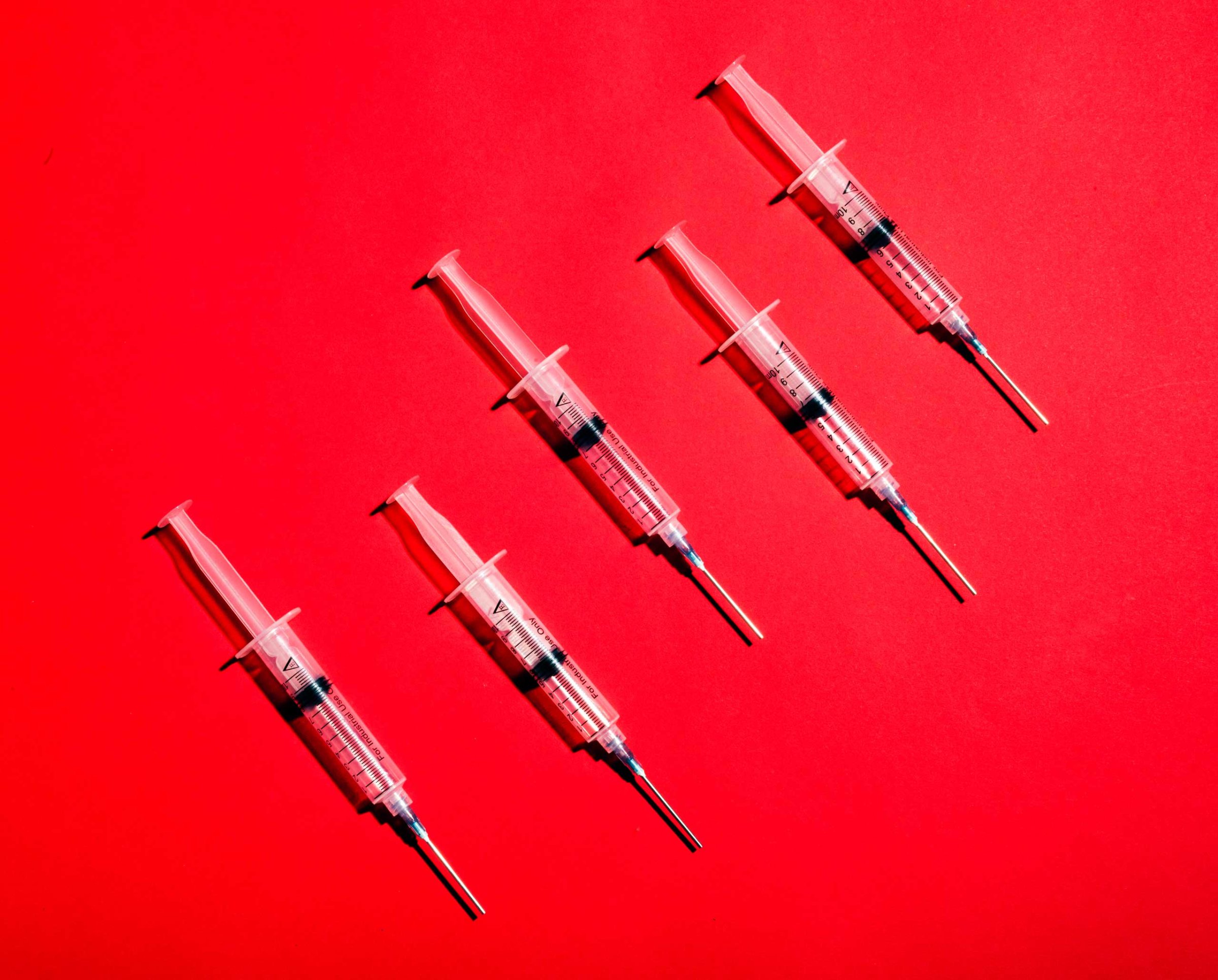
Male birth control just got one step closer to becoming a reality (finally!). A new study shows that giving contraceptive injections to men can effectively prevent pregnancy in their partners. The caveat: the shots won’t be available any time soon. Their formulation must be tweaked to reduce side effects, and larger studies are needed before they can be brought to market.
Hormonal birth control has never been an option for men, who currently have few choices when it comes to managing their fertility, including condoms, vasectomies, and the not-always-effective withdrawal method.
The new study, a phase II clinical trial, tested the safety and efficacy of injectable contraceptives in 320 men ages 18 to 45. The men received two hormones—a synthetic testosterone and progesterone—via injection, every eight weeks for up to a year and a half.
Synthetic testosterone suppresses sperm count, explains Jamin Brahmbhatt, MD, a urologic surgeon with the Orlando Health hospital system, because it tricks the body into thinking it has enough of the hormone. The body then shuts down production of real testosterone, which is needed to make sperm.
“We already prescribe this drug to men who have low testosterone levels, and we warn our patients that they may experience infertility as a side effect,” Dr. Brahmbhatt, who was not involved in the new study, told Health. Pairing testosterone with the other drug tested in the study—a type of synthetic progesterone—has been shown to alleviate other side effects, he adds.
Health.com: Your Birth Control Might Raise Your Depression Risk
The participants provided semen samples regularly. Once their samples were shown to contain less than 1 million sperm per milliliter—which for most men, occurred within 24 weeks—they were instructed to stop using other forms of birth control with their partners (women ages 18 to 38) and rely only on the injections.
In the second phase of the study—during which 266 men continued receiving injections for up to 56 more weeks—four pregnancies occurred. (That makes sense, says Dr. Brahmbhatt, since a tiny amount of sperm is still likely to be present.) The researchers determined the drug combo was nearly 96% effective at suppressing sperm counts. Condoms, in comparison, are 98% effective when used correctly.
The results were published online and will appear in the Journal of Clinical Endocrinology & Metabolism. The research was funded by several global health organizations, including the United Nations and the World Health Organization (WHO).
Health.com: 16 Worst Birth Control Mistakes
“The study found it is possible to have a hormonal contraceptive for men that reduces the risk of unplanned pregnancies in the partners of men who use it,” said co-author and WHO researcher Mario Philip Reyes Festin, MD, in a press release. “Our findings confirmed the efficacy of this contraceptive method previously seen in small studies.”
However, complaints from participants caused the researchers to stop enrolling new volunteers earlier than expected. The men reported side effects including muscle pain, pain at the injection site, increased libido, and acne. One participant was diagnosed with depression, one intentionally overdosed on acetaminophen, and one experienced an irregular heartbeat after he stopped receiving injections.
Overall, 20 participants dropped out of the study because of side effects. One person also died in a suicide, although researchers concluded that was not related to the drug. In fact, nearly 39% of the 1,491 adverse effects reported were found to be unrelated to the injections.
Despite the side effects, however, more than 75% of participants said they’d be willing to use this method of contraception once the trial was over.
Health.com: These Personality Traits Are Linked to a Healthier Sex Life
They won’t have that option for at least a few years, though. “More research is needed to advance this concept to the point that it can be made widely available to men as a method of contraception,” Dr. Festin said. Along with larger, phase III trials, he added, “the combination of hormones needs to be studied more to consider a good balance between efficacy and safety.”
Dr. Brambhatt predicts it will be at least five to 10 years before a hormonal birth control method is approved by the Food and Drug Administration. When that does happen, however, he thinks injections will still be the delivery method (rather than a pill).
“With injections, the drug stays in your body,” he says. “You don’t have to think about it the way you do with condoms or even female birth control pills—which is one reason those methods sometimes fail. My patients who get injections for low testosterone really like that they don’t have to remember to take something every day.”
“Having a long-acting form of birth control for men will be ideal, and this is a step in the right direction,” he continues. “But this study doesn’t solve all of the problems we’ve seen so far, and we’re still far away from finding the right dosage.”
This article originally appeared on Health.com
More Must-Reads from TIME
- Donald Trump Is TIME's 2024 Person of the Year
- Why We Chose Trump as Person of the Year
- Is Intermittent Fasting Good or Bad for You?
- The 100 Must-Read Books of 2024
- The 20 Best Christmas TV Episodes
- Column: If Optimism Feels Ridiculous Now, Try Hope
- The Future of Climate Action Is Trade Policy
- Merle Bombardieri Is Helping People Make the Baby Decision
Contact us at letters@time.com